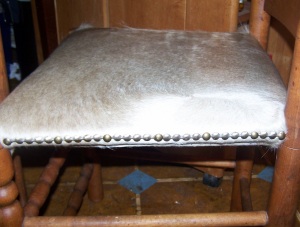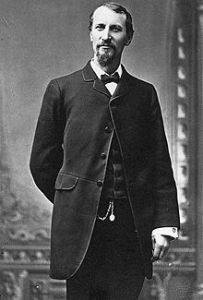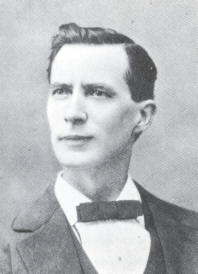 (I was inspired by reading a recent post about how Fred Harvey brought fine dining to the far wild west, as essentially, the food and hospitality concessionaire with the Atchison, Topeka & Santa Fe Railway. What better method of bringing a venturesome heroine face to face with her destiny in the far West!)
(I was inspired by reading a recent post about how Fred Harvey brought fine dining to the far wild west, as essentially, the food and hospitality concessionaire with the Atchison, Topeka & Santa Fe Railway. What better method of bringing a venturesome heroine face to face with her destiny in the far West!)
Chapter 2 – In Doctor Cotton’s Care
Freed at last from the worried and fond concern of friends and relations, Sophia leaned her head back against the high chair and let her mind wander. She was rendered uneasy by uncertainty which had overtaken her life. As a Vining and a Brewer of Beacon Hill, she had always had her future set out for her, in short and decorous steps; the same path that her mother, her grandmother, Phoebe even – had paced in their turn. All but Great-aunt Minnie had gone on that path. Girlhood, some kind of education, then matrimony, motherhood, the rule of a home, good works, a constellation of children and grandchildren … but now all that was cast into doubt, uncertainty. There was no room in that path for deviations, or even for uncertainty, but without any fault of her own that she could see – she had strayed from that path, and had no idea of how to return to it.
At half-past the hour of two o’clock, she put on her every-day bonnet and mantle, and walked to the school on Bedford Street where Richard’s older son, the pride of his life attended school. No one in the house took any apparent note of her departure – not that she had expected any. This was one of her regular duties about the house – to walk Richie home from school, and attend to any small errands required by her brother and Phoebe along the way.
Richie attended the Boston Latin – nothing less than the very best would do for a Brewer than the oldest and finest Latin school in Boston, housed in a fine stone building in the old-fashioned classical style, with four tall windows on every one of four floors and some archaic adornment on the shallow gable-end facing Bedford Street. She waited by the railings what marked off the school grounds, until the flood of pupils – boys and girls alike – had emerged from every doorway and scattered like a burst milkweed pod sending threads of silk and seeds in every direction.
Richie stood out among the dispersing students for the fair hair which he had inherited from Phoebe, and the height inherited from Richard. He was very well-grown for a seven-year old. Fortunately, he appeared also to have inherited Richard’s features and temper; a good thing, as Sophia had often reflected. Phoebe’s like translated into small-boy form would have been bullied endlessly, even among his fellow students, who numbered among them the scions of the very best Boston families.
“Hey! Auntie Soph!” Richie now shouted, and Sophia winced.
“Hay is for horses,” she reproved her nephew, when he was close enough to her that she could speak without raising her voice. “You should raise your voice like that in the street. And my proper name is Sophia.”
“Yes, Auntie Soooophia,” he answered, with exaggerated meekness. Sophia laughed. She was rather fond of Richie, for all of his small-boy bumptiousness. There were times when she thought she had more of the mothering of him than Phoebe. Now he skipped along at her side, swinging his book-bundle without a care and chattering away nine to the dozen at her – telling of daily woes and penalties imposed by teachers, of small yet ferocious encounters and battles of wits with them and with other students; classroom triumphs and schoolyard tragedies. Sophia listened without listening, a skill she had long ago learned and practiced – the art of seeming to pay attention with part of her mind, but with much of the rest given over to her own thoughts. Finally even Richie noticed her distance from his conversation, and said impatiently,
“Auntie Sophia, aren’t you even listening to me? I just said that the State House dome looked as if it had all crashed in, and you said, ‘Yes, Richie; that’s altogether possible.’”
“I did?” Sophia looked around – they had walked halfway through the Public Gardens, and she had never even noticed they had gotten to hers and Richie’s favorite part of the walk home. And this was her favorite time of year in the Public Garden, too – with all the massed plantings of bulbs in bloom, scenting the air with delicate perfume, and all the young trees putting out pale green leaves – for the Garden was still so new that most of the trees were young and lately-planted. For Sophia, this was one of her reasons to love Great-Aunt Minnie’s residence in the old Vining mansion on Beacon Street – the front windows overlooked the Gardens and the Common.
“You did.” Richie affirmed, and Sophia sighed and confessed, “I am sorry, Richie. My mind was intent on other things.”
“What things?” Now he had to run, in order to keep up with her.
Caught up in her own distress, Sophia had begun walking faster and faster. “It seems that I am not to marry Mr. Armitage,” she answered at last. “He came and told me today that his – our promise to marry is broken. He will not marry me, as his father has forbidden it.”
“Why is that, Aunt Sophia? I thought he was a … a nice chap. And that you were in love, or something goopy like that.” Richie’s sunny countenance looked as if a cloud had suddenly floated in and darkened it.
“I suppose it is because we are too poor now for the high-and-mighty Armitages,” Sophia answered, feeling a wholly unexpected bitterness. Richie flung his arms around her waist in an exuberant hug.
“Well, I love you, Auntie Sophia! If you can’t get a beau to marry you by the time I’m grown-up, than I will marry you myself!”
“Thank you, Richie,” Sophia returned the embrace. “For that is a kindly thought and I love you, too – but you can’t marry your aunt, and I will be too old for you by then, anyway.”
“Well, then I will just have to find you a beau in the meantime,” Richie said, with an expression of great determination. “My quest for my lady fair will be to find her a proper knight and love…” He suggested the name of an older brother of one of his schoolmates, in all seriousness.
“You have been reading too much Walter Scott,” Sophia laughed, her good humor restored somewhat. “That gentleman is a confirmed bachelor. He has spots on his complexion – at the age of thirty, no less – and has never had a good word to say to, or of a woman. Burden me not with the name of another elder brother, or uncle, Richie. I know them all, by family connection or by repute. And none of them will suit. Of that I am certain.”
“I will think of someone,” Richie answered, his countenance expressing determination. “Someone brave and handsome, with deeds of derring-do on his ess—escrutchon…”
“Escutcheon,” Sophia laughed, fondly. “Do you even know what an escutcheon is, Richie? It’s a family banner, a shield – it means the good name or repute of the family which has one as a patent of nobility …”
“And rich,” her nephew added, as if he had not heard. “Rich enough not to care.” They walked on, in good humor, Sophie reflecting that of her family, only Richie and Great-aunt Minnie restored her soul with faith in herself; one a child and the other an octogenarian.
There was an unfamiliar carriage drawn up before the Brewer townhouse, with a clearly-bored coachman sitting on the box. Sophia usually recognized the carriages and horses of those of their regular callers and friends; perhaps this was one of Richard’s business associates.
“Is that one of Mama’s friends?” Richie asked, as they went up the steps, pausing in the grandly-pillared portico, while Sophia opened the door.
“No – she received callers earlier … and they have been gone for hours.”
As soon as Sophie stepped inside the hallway, Richard called from his study.
“Sophia, my dear – is that you and the lad? Come into the parlor. Dr. Cotton took the time to make a call on us, at my request. Fee has told me of what happened – I knew you would be distraught, so I sent for Dr. Cotton at once. He is in the parlor, with Phoebe, waiting for you.”
Richard emerged from his study, and Sophia’s heart warmed at the sight of him; a tall and handsome man in his early middle years. Richard Brewer was at least a decade past being in the full bloom of youth and beauty, but those years had only refined his features with an attractive burnishing of age and experience, transforming youth into sober maturity. To Sophia, he had been a father at least as much as a brother; the head of their family in all things. Mama had leaned on him and the child Sophia adored him – the central sun of the constellation of family – just as did Phoebe. Sophia had been ten years old when Richard and Phoebe married. She supposed that she had been jealous at first – Fee was so silly! – but nothing had really changed in the family, until Mama’s protracted and final illness. This occurred almost at the same time as the failure of the Marine National, which spelled an end to Brewer prosperity. Agnes occasionally talked of something called a geas … a curse upon the house. Sophia often wondered if Agnes were right in that. They had all been happy, life had been pleasant … and then Mama died, and happiness fled from the Brewer house.
“I am not distraught in the least,” Sophia insisted. “More disappointed in Mr. Armitage than anything.”
“That’s our brave little Sophie,” Richard averred fondly. “Making a brave show of concealing a broken heart … I know that Mama had intended from childhood that you two ought to marry.”
“I do not have a broken heart,” Sophia insisted again. Really, this was becoming an annoyance, how everyone seemed so certain of her feelings on the broken engagement. “I grieve at the loss of a friendship! If anything, I am angry at being cast aside after all this time, merely because Mr. Armitage thinks we are poor…”
Richard took her hands, pleading in earnest, “Dear little sister – we are not poor. We have lost some of our investments, which is quite another thing. We have this house, our affection for each other as a family, an affection which bids me consider your health and happiness with every care. Allow Dr. Cotton to examine you in his capacity as a physician, and relieve my mind of a burden of worry.”
“Of course I will, “Sophia yielded, still reluctant, but of course – Richard bore so many cares on his shoulders. It would not be fair for her to contribute to them by continuing to argue. Instead, she went to the parlor, where Fee sat, occasionally jabbing an inexpert needle into her Berlin wool-work and chattering to Dr. Cotton. The good doctor himself stood before the fire, with his hands behind his back. Sophia rather suspected that he was doing as she had with Richie earlier, listening to Fee without really listening, absorbed in his own thoughts while delivering an occasional noncommittal response. He was a lean and saturnine man, a contemporary and a friend of Richard’s. Sophia did not particularly care for him, although he seemed competent enough as a doctor. It was old Doctor Hubbell, whose practice Dr. Cotton had inherited, who had seen to all her childish ailments, and who had attended Mama in her final illness, who had her confidence and trust.
While Fee attended, still ignoring her embroidery, Dr. Cotton inquired into Sophia’s state of mind and general health. Sophia repeated the same answers she had made to everyone else this day, feeling somewhat as if she were a parrot. Dr. Cotton looked into her eyes, listened to her pulse with his little patent ivory and patent-rubber listening horn, and finally delivered himself of his judgement.
“You are anemic, my dear Miss Brewer. I shall prescribe a tonic, which you must take every morning without fail, in order to build up your blood and your strength. I will compound it myself, and send over the first bottle. I shall visit next week to assess your condition, and adjust the dosage accordingly.”
“We shall take every care, Dr. Cotton,” Fee promised, with enthusiasm. Sophia repressed a small sigh; Fee was hopelessly enamored of potions, tonics, powders, and pills – cures for every ailment which she had fancied afflicted her. Sophia had most often refused those doses which Fee urged regularly upon her; now Fee was backed by Dr. Cotton’s authority. Unless Sophia missed her guess, Fee would redouble her efforts.
When Dr. Cotton had finally taken his leave, Sophia climbed the two flights of stairs, feeling as if she were as old and tired as Great-Aunt Minnie.
“I am not heartbroken,” She asserted to her reflection in her dressing table mirror. “And I am not distraught.”
In all this long afternoon, her reflection was the only being which did not argue with her.
 This month we advanced another big step: getting the love-seat/sleeper sofa, two chairs and a tuffet all reupholstered – in heavy leather-look vinyl, replacing the original fabric – and making them all look as if they are in a set. This is an aesthetic improvement, and offers a higher level of pet-proofing, in that accidents can be readily sponged away. The upholstery shop will have the first piece done by next weekend, and the rest completed two weeks later. Two rugs returned from exile in the garage; so far, so good; the surviving cats don’t seem inclined to make messes anywhere but in the small area around their litter-boxes. The cat-tree has a couple of sisal-wrapped columns which they seem to prefer sharpening their claws upon, so there is hope for the furniture to escape unscathed. So far the cowhide seats have done so. The final element in renewing the house involved accommodating oddments from Mom and Dad’s house; a few pieces in silver and crystal, a framed stained glass panel, and some kitchen things which no one else wanted … so, some things had to be put away, others Goodwilled, and some of them just plain thrown away in the interests of space. But the den and the main room look quite good now – better than they have in a while, if not quite as spic-and-span as Granny Dodie would have had them.
This month we advanced another big step: getting the love-seat/sleeper sofa, two chairs and a tuffet all reupholstered – in heavy leather-look vinyl, replacing the original fabric – and making them all look as if they are in a set. This is an aesthetic improvement, and offers a higher level of pet-proofing, in that accidents can be readily sponged away. The upholstery shop will have the first piece done by next weekend, and the rest completed two weeks later. Two rugs returned from exile in the garage; so far, so good; the surviving cats don’t seem inclined to make messes anywhere but in the small area around their litter-boxes. The cat-tree has a couple of sisal-wrapped columns which they seem to prefer sharpening their claws upon, so there is hope for the furniture to escape unscathed. So far the cowhide seats have done so. The final element in renewing the house involved accommodating oddments from Mom and Dad’s house; a few pieces in silver and crystal, a framed stained glass panel, and some kitchen things which no one else wanted … so, some things had to be put away, others Goodwilled, and some of them just plain thrown away in the interests of space. But the den and the main room look quite good now – better than they have in a while, if not quite as spic-and-span as Granny Dodie would have had them.





Recent Comments